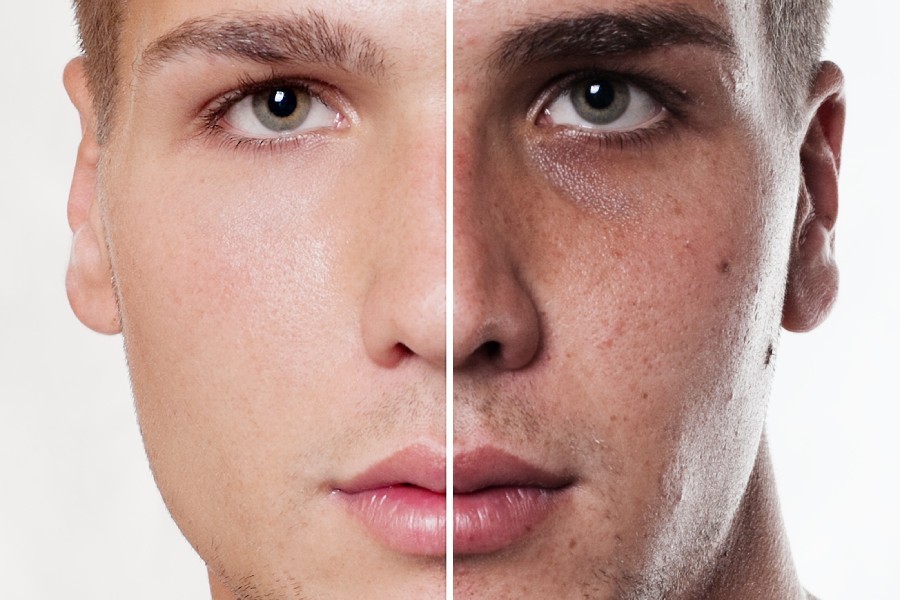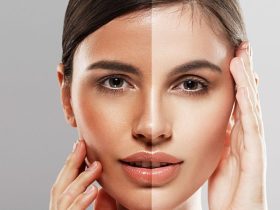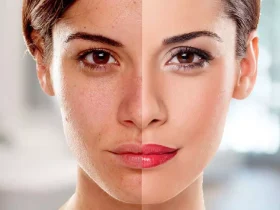Skin whitening treatment aims to lighten the skin tone and reduce discoloration. These treatments can involve topical creams, lasers, or chemical peels.
People seek skin whitening treatments to achieve a more even skin tone or address hyperpigmentation issues. Such treatments often include the use of topical creams, laser therapy, or chemical peels to reduce melanin production in the skin. It’s essential to choose a safe and effective method, as improper treatment can lead to adverse effects.
Consulting with a dermatologist is crucial to determine the most suitable approach for your skin type and condition. Always prioritize treatments that have been clinically tested and approved by healthcare professionals to ensure safety and effectiveness.

Credit: www.dnaskinclinic.in
Introduction To Skin Whitening
Skin whitening is a process that aims to lighten the skin tone. People use creams, pills, and treatments to achieve this. The goal is to reduce melanin in the skin. Melanin is the pigment that gives skin its color. Many seek a fairer complexion for various reasons. Some do it for beauty, others for cultural beliefs.
Skin whitening is important for many people around the world. Some believe it boosts their confidence. Others think it makes them more attractive. In some cultures, lighter skin is linked to higher social status. Many products are available to help achieve lighter skin. These include creams, lotions, and medical treatments. It is essential to choose safe and effective methods.
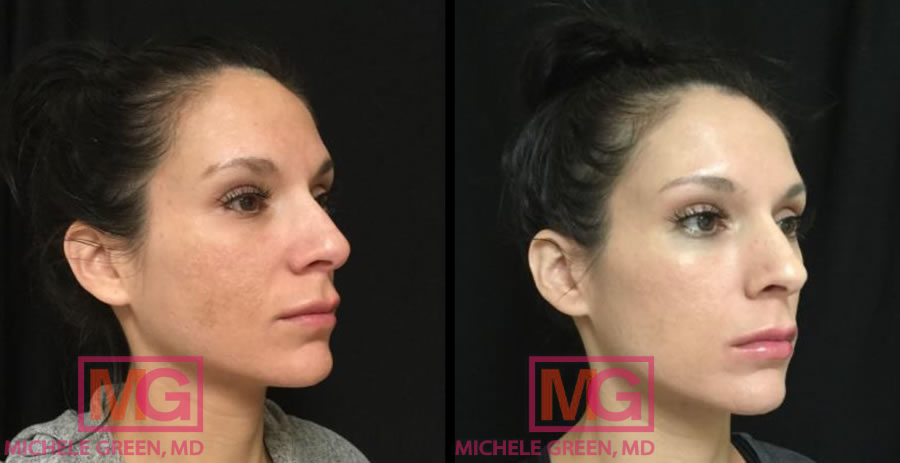
Credit: www.michelegreenmd.com
Popular Skin Whitening Treatments
Topical creams are a common choice. They contain brightening agents like vitamin C and kojic acid. These creams help to reduce melanin in the skin. They can make the skin look brighter and even-toned. Always use sunscreen with these creams. This protects the skin from UV rays.
Laser treatments use light energy to target dark spots. The laser breaks down melanin in the skin. This helps to lighten the dark areas. The procedure is quick and effective. It may cause some redness and swelling after the session. Always consult a dermatologist before starting laser treatments.
Natural Remedies For Skin Whitening
Lemon juice is a great natural bleach. It can lighten dark spots. Turmeric has anti-inflammatory properties. It helps improve skin tone. Honey is a natural moisturizer. It brightens the skin. Aloe vera soothes the skin. It also helps with dark spots. Milk contains lactic acid. It gently exfoliates the skin. Yogurt is rich in lactic acid too. It helps in skin lightening.
Licorice root extract is known for its skin-brightening properties. It helps reduce dark spots. Mulberry extract is another effective herbal treatment. It inhibits melanin production. Green tea extract has antioxidants. It improves skin health and brightens the complexion. Chamomile calms the skin. It also helps in lightening. Saffron is a luxurious herb. It brightens and improves skin tone.
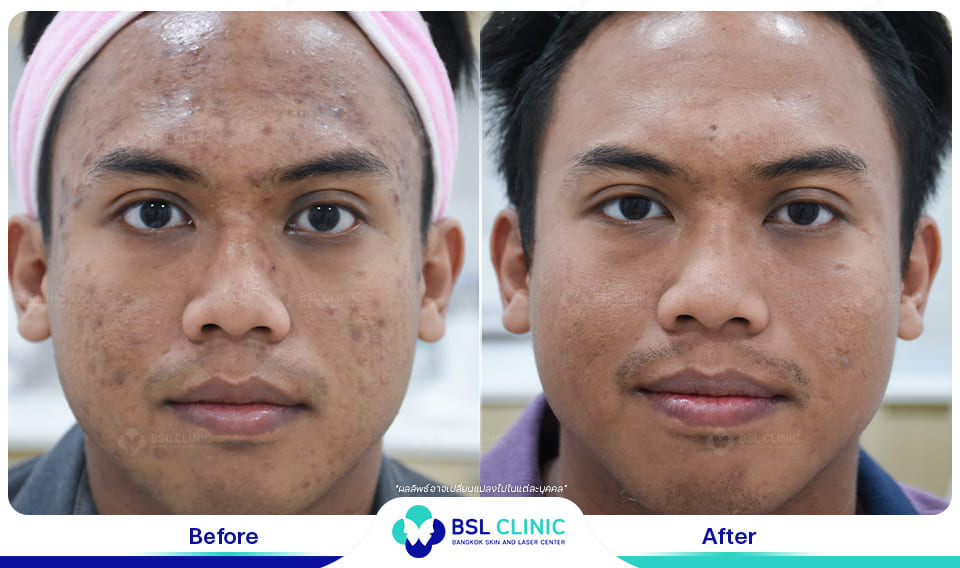
Credit: bangkokaestheticclinic.com
Benefits Of Skin Whitening
Skin whitening can give your skin a brighter and even tone. It helps to reduce dark spots and blemishes. You will notice a smoother and more radiant complexion. Your skin can look younger and healthier with the right treatment. Many people find their appearance improved significantly.
Feeling good about your skin can boost your confidence. People with clearer, brighter skin often feel more self-assured. This can lead to better social interactions and professional opportunities. Confidence in your appearance can positively affect many aspects of your life. You may feel more comfortable and happy in your own skin.
Risks And Side Effects
Skin whitening treatments carry risks such as skin irritation, redness, and allergic reactions. Long-term use may lead to more severe side effects like thinning skin and increased sensitivity to sunlight. Always consult a dermatologist before starting any treatment.
Potential Risks
Skin whitening treatments may cause redness, swelling, or itchiness. These treatments can sometimes lead to permanent skin damage. Overuse of whitening products might result in discoloration. Some people may experience allergic reactions. Certain treatments could increase sensitivity to sunlight. There is a risk of thinning of the skin with prolonged use. Infections can occur if the skin barrier is compromised. Chemical burns are another possible side effect. Always consult a doctor before starting any treatment.
Managing Side Effects
Use moisturizers to soothe the skin after treatment. Avoid sun exposure and use sunscreen. If you experience redness, apply cold compresses. Over-the-counter antihistamines can help with itchiness. Hydrate by drinking plenty of water. Follow the instructions on product labels carefully. Consult a dermatologist if side effects persist. Avoid harsh chemicals in skincare products. Patch test new products before full application.
Choosing The Right Treatment
Consulting a dermatologist is important. Dermatologists know which treatments work best. They check your skin and give the right advice. They can suggest creams, lotions, or procedures. Always seek their help first.
Understanding your skin type is key. Dry skin needs moisturizing treatments. Oily skin may need different products. Sensitive skin requires gentle formulas. Knowing your skin type helps in choosing the right treatment.
Post-treatment Care
After skin whitening treatment, keep your skin hydrated and avoid direct sunlight. Use a gentle moisturizer and sunscreen daily.
Skincare Routine
Maintain a gentle skincare routine. Use mild cleansers and avoid harsh scrubs. Apply a moisturizer suitable for sensitive skin. Keep the skin hydrated to promote healing. Use products with soothing ingredients like aloe vera. Avoid products with alcohol or strong fragrances.
Avoiding Sun Exposure
Stay out of direct sunlight as much as possible. Sun exposure can reverse the effects of treatment. Wear a broad-spectrum sunscreen with SPF 30 or higher. Reapply sunscreen every two hours when outdoors. Use protective clothing like hats and long sleeves. Seek shade whenever possible. Avoid tanning beds and sunlamps.
Myths And Facts
Many people believe skin whitening treatments are always harmful. This is not true. Some treatments are safe and effective. Another common myth is that all skin whitening products work the same. In reality, they can vary greatly. Some think natural ingredients are always better. This is not always the case. Some natural ingredients can irritate the skin.
Scientific research shows some skin whitening treatments can be safe. Ingredients like Vitamin C and Kojic Acid have been proven to lighten skin. These ingredients work by reducing melanin production. Dermatologists recommend using treatments as directed. Overuse can lead to side effects. It’s important to choose products with proven safety records.
Frequently Asked Questions
What Is Skin Whitening Treatment?
Skin whitening treatment aims to lighten skin tone and reduce pigmentation. It involves various methods like creams, laser therapy, and chemical peels.
Are Skin Whitening Treatments Safe?
Skin whitening treatments can be safe if done correctly. Always consult a dermatologist before starting any treatment to avoid side effects.
How Long Do Results Last?
The results of skin whitening treatments vary. They can last from a few months to several years, depending on maintenance.
Are There Any Side Effects?
Yes, skin whitening treatments may have side effects. These can include redness, irritation, and uneven skin tone. Consult a dermatologist for advice.
Conclusion
Achieving a brighter complexion is possible with various skin whitening treatments. Choose a method that suits your skin type. Always consult a dermatologist before starting any treatment. Healthy skin requires proper care and attention. Embrace your natural beauty while exploring safe whitening options.
Stay informed and prioritize your skin’s health.

